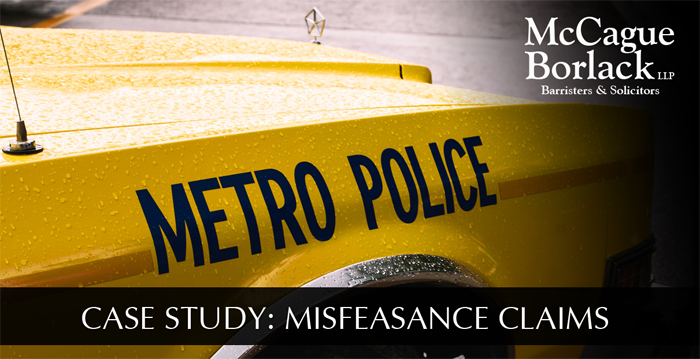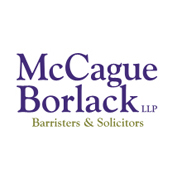The Supreme Court of Canada slammed the door shut on misfeasance claims against Crown prosecutors in one of their most recent rulings. In an 8-1 decision, the Court reinforced the immunity of Crown prosecutors in their prosecution of criminal matters due to their unique positions in the justice system that requires them to be free from fear of civil liability in the execution of their duties.
Facts
In June 2009, two individuals were arrested and charged with complaints of armed robbery and forcible confinement. Prior to the trial, one of the individuals brought an application to stay the proceedings against him and to exclude the evidence of a confession he made on the date of the arrest on the basis that he was beaten by the arresting officers causing severe injury. The Crown prosecutors on the matter stated that the confession would not be admissible and stayed the charges. The other individual, after being convicted in a jury trial, then also filed a stay making similar allegations and the Crown prosecutors again conceded that the assault occurred without calling the officers to provide evidence. The Judge at trial, in turn, called the actions of the arresting officers “police brutality”, the incident was reported on the news and upon appeal, the conduct of the officers was again condemned by the Court of Appeal. All of this was counter to reviews conducted by the Special Investigations Unit and the Toronto Police Service Professional Standards Unit, with the latter of the two concluding that the allegations made by the individuals against the arresting officers were unsubstantiated.
As a result of these events, the arresting officers brought an action against the Attorney General of Ontario on allegations of negligence and misfeasance in public office due to the claimed irreparable harm to their reputations and credibility. The negligence claim was struck at the trial level. In turn, the appeals in this matter are solely related to the misfeasance claim, with the Court of Appeal ruling in the officers' favour and the Ontario AG appealing the matter to the Supreme Court.
Analysis
...Crown Prosecutors have immunity from claims made by police officers... |
The Court ultimately held that Crown Prosecutors have immunity from claims made by police officers regarding the decisions made in the course of handling a criminal proceeding. The Court was concerned that allowing officers the opportunity to pierce prosecutorial immunity and in turn effectively make them accountable to the police would result in a “perpetual potential conflict with their transcendent public duties of objectivity, independence and integrity in ensuring a fair trial for the accused and maintaining public confidence in the administration of justice”. This potential chilling effect on a prosecutor’s willingness to perform their duties was viewed as a critically important matter to avoid for the public good.
In the majority decision drafted by Abella J., the court actively reviewed the policy implications of piercing prosecutorial immunity, noting the Court’s history on the matter and the significant risks that allowing police officers to pierce that immunity could present. Most notably the court discussed the importance of the independence between the two roles in the administration of justice and that allowing one side to have some form of control over the other could lead to significant miscarriages of justice. The decision spoke to the role of the prosecutor as a check upon the power of the police and a buffer between them and the public in providing a sober second opinion on charges laid. Essentially, the core of fairness in the administration of justice was viewed as the mutual independence of these two entities.
Also of note, Cote J. dissented from the majority on grounds that the appeal should be dismissed as the rule of law requires equality under the law and in turn is incompatible with absolute immunities. Ultimately, Cote J. viewed the actions of the prosecutors as inflicting deliberate and unlawful harm against the officers and in turn that the officers should have recourse to hold them accountable for those actions. Instead of the majority position, Cote J. proposed a two-step analysis for determining the application of prosecutorial immunity consisting of determining whether there are cogent policy reasons for piercing the immunity and determining whether the liability threshold for the tort at issue is high enough to justify piercing the immunity. This analysis would be focused on a detailed review of the policy bases involved in the matter including the tactical nature of the decisions involved, the significance of the interests at stake, the lack of meaningful alternative remedies and accountability mechanisms and the public confidence in the office of the prosecutor and in the police. Additionally, a given plaintiff would also have to demonstrate some form of deliberate misconduct on behalf of the prosecutor.
This framework may provide grounds for future discussions as the court will likely continue to discuss the matter of prosecutorial immunity going forward.


